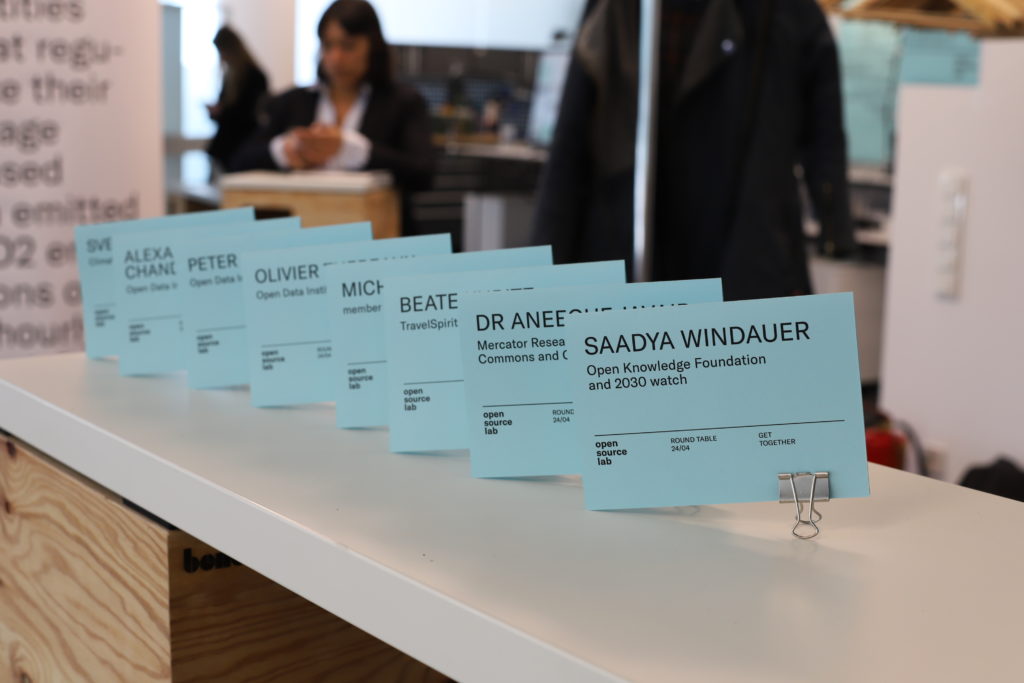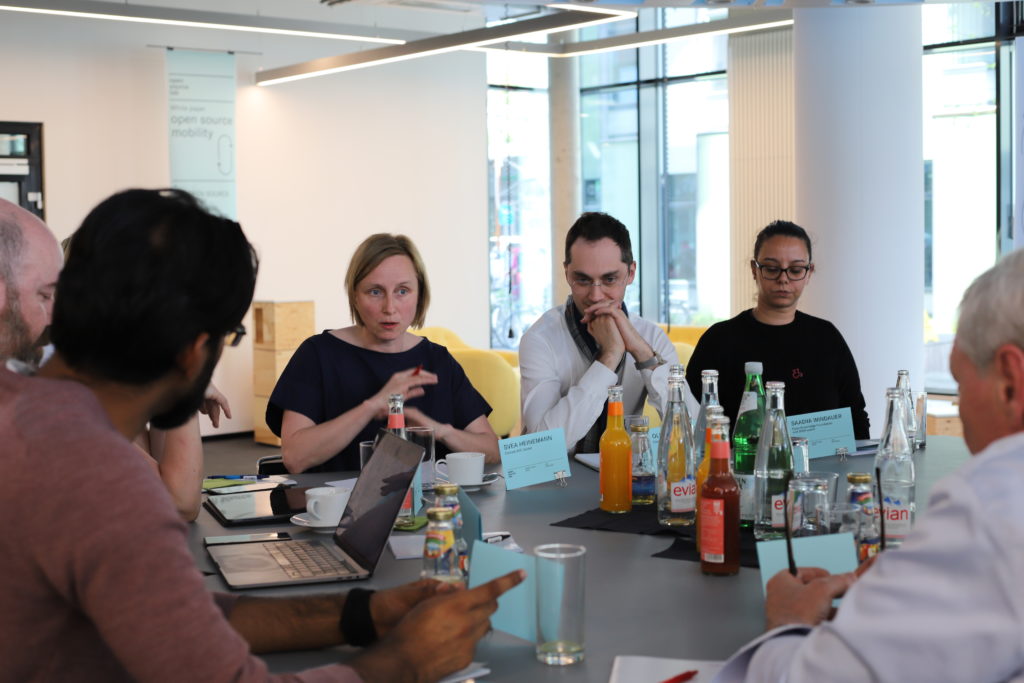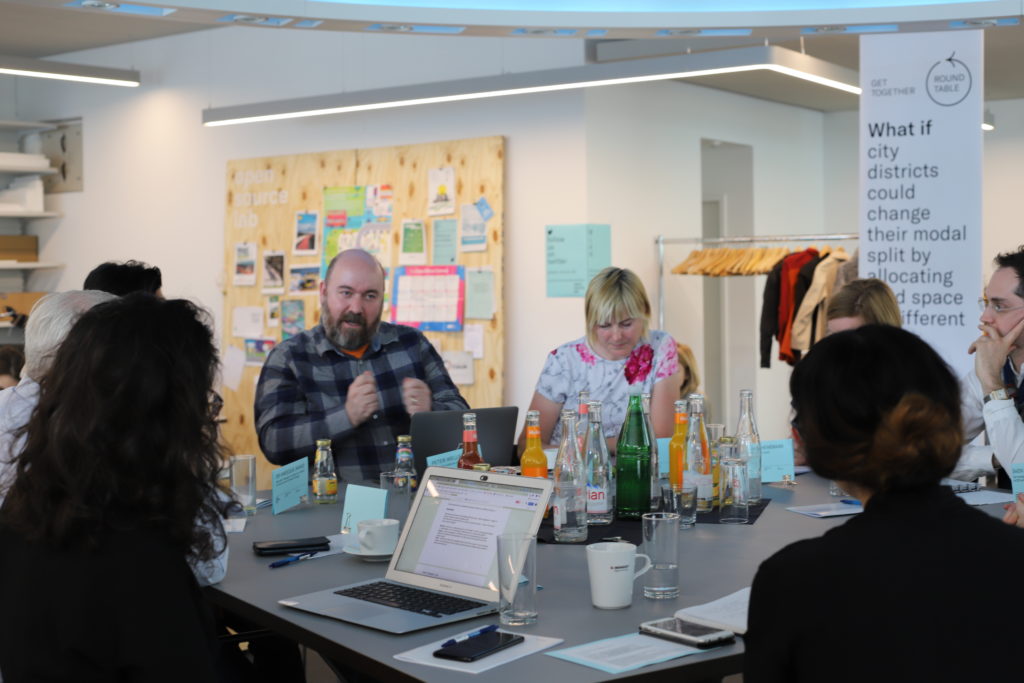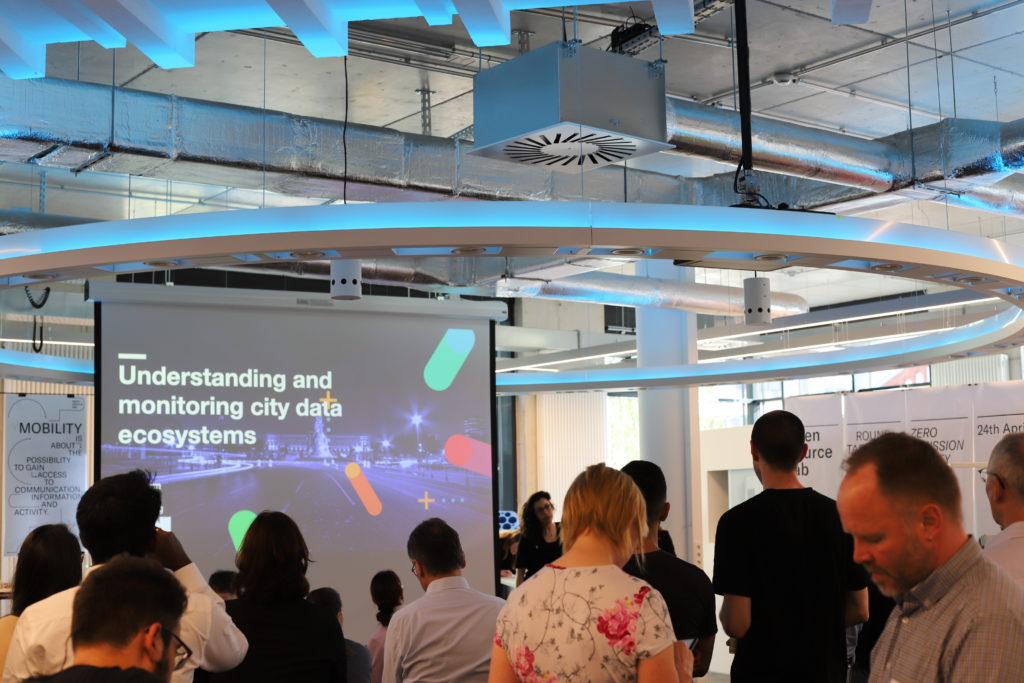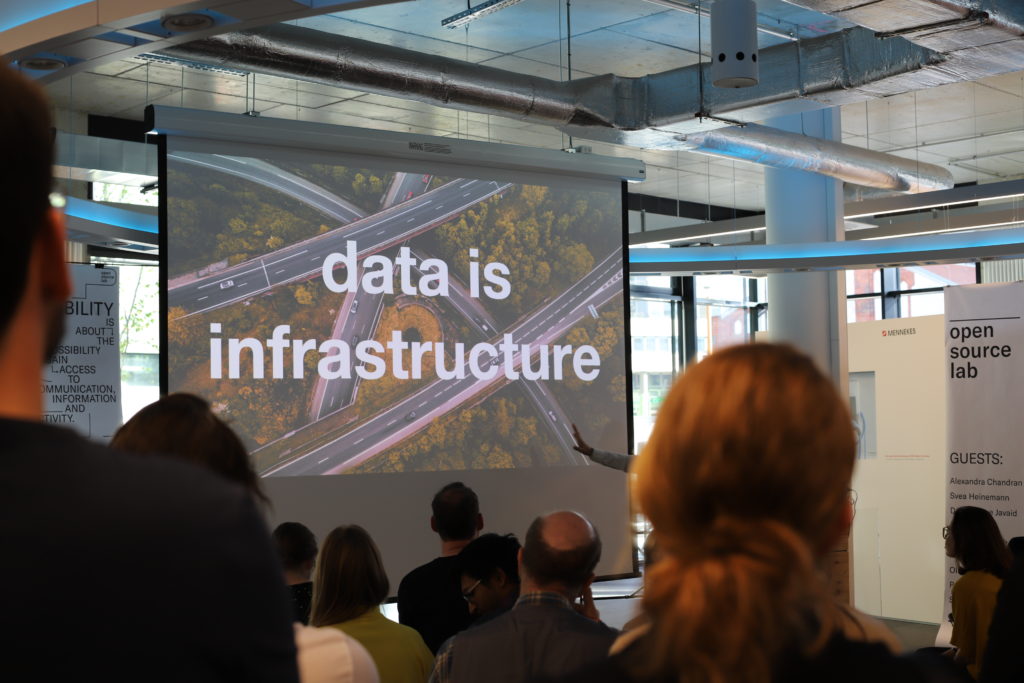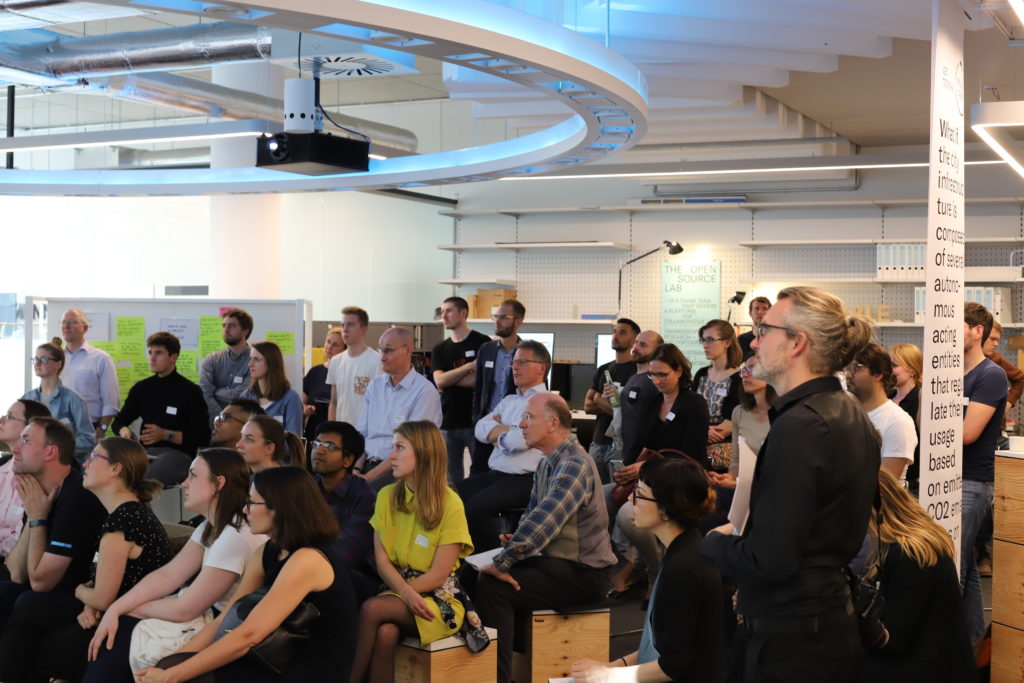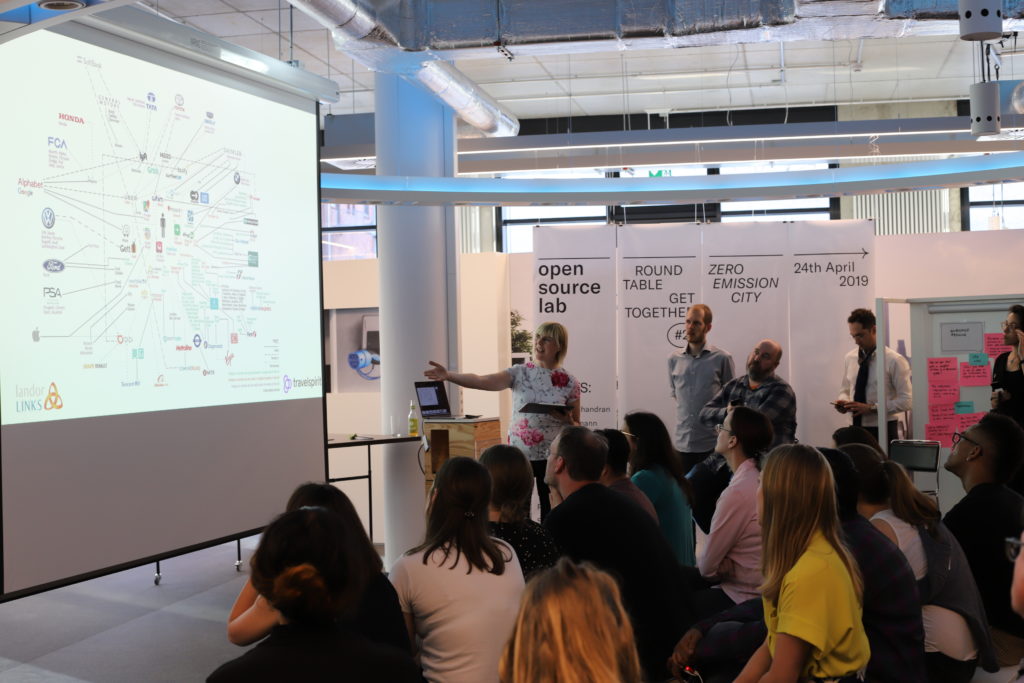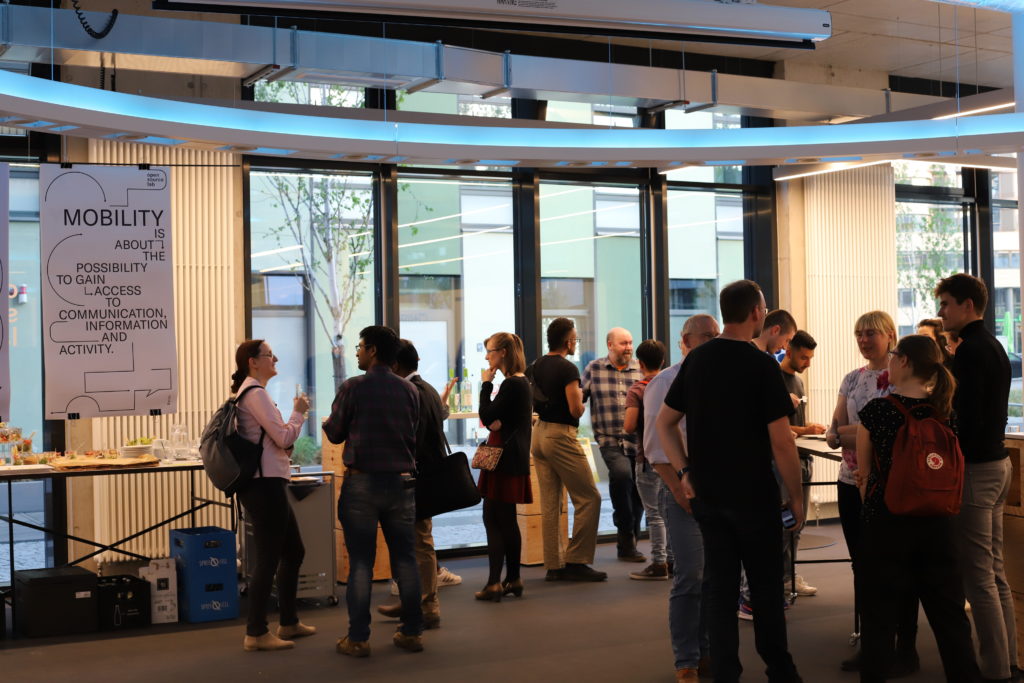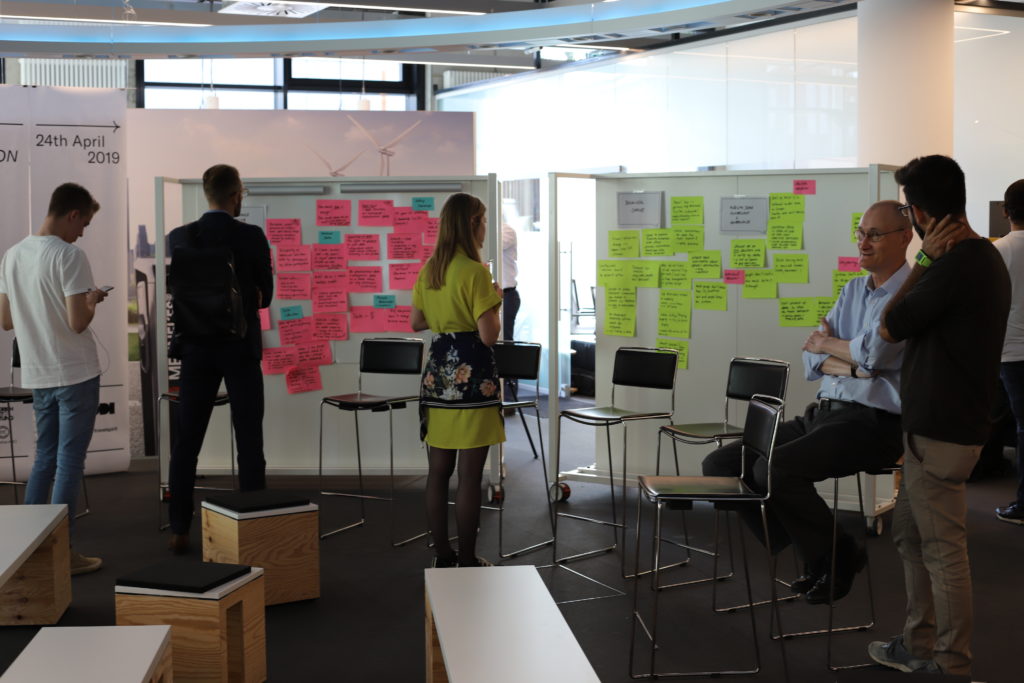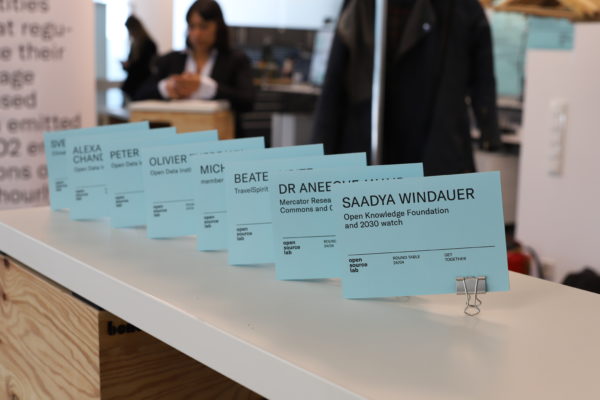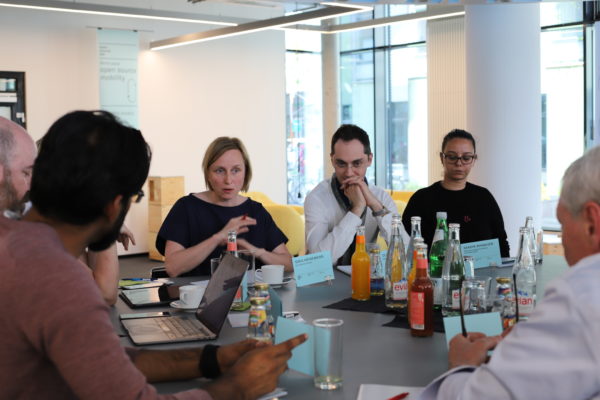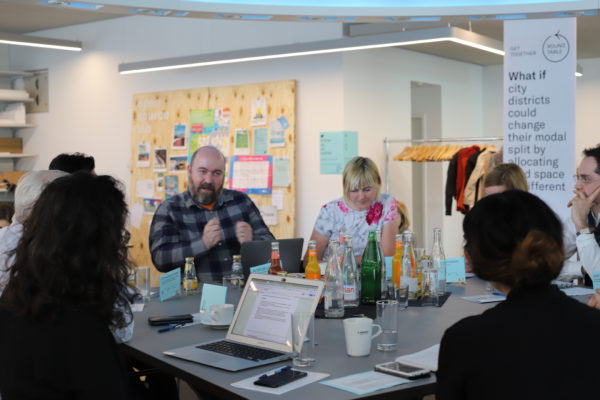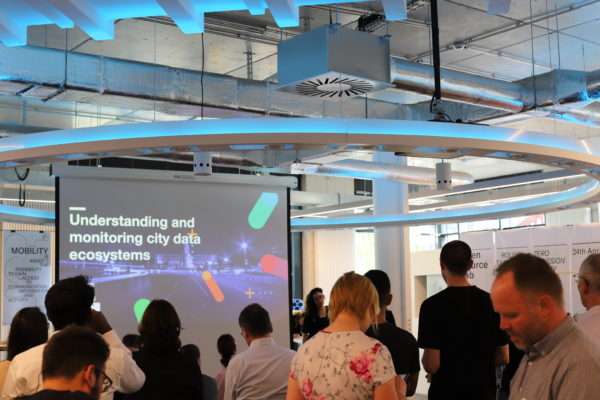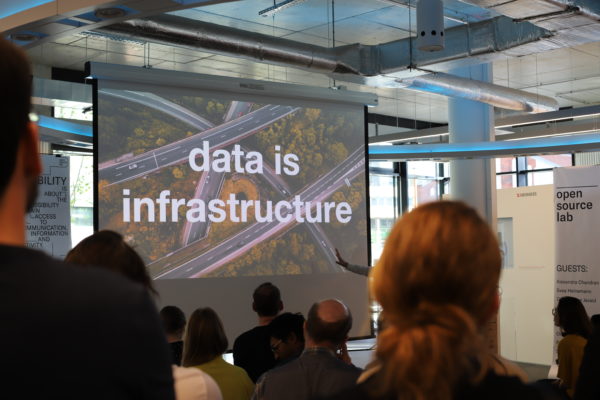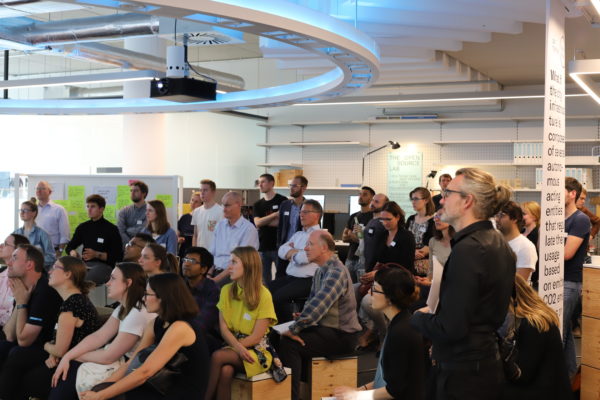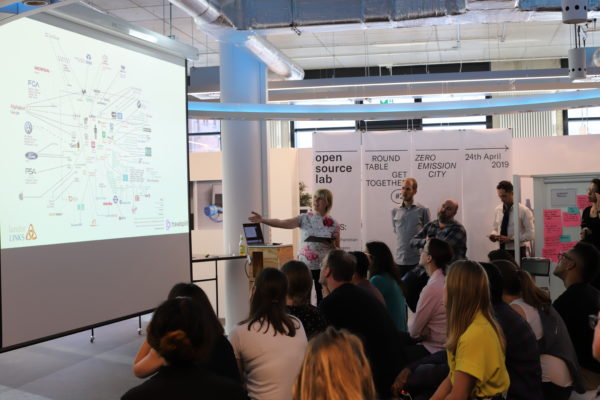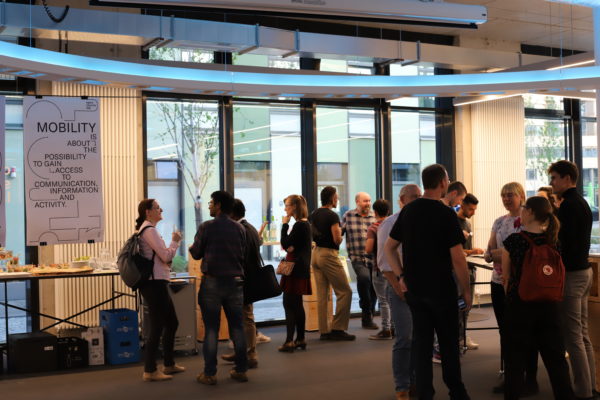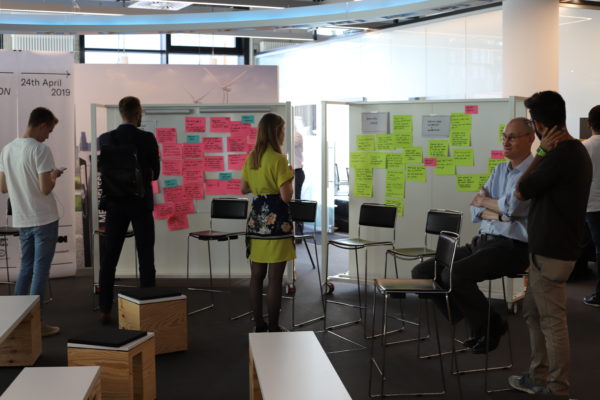Surprisingly, or maybe not so much, all of us prefer using our feet, bikes and sharing systems as well as public transport options. Factors that influence our choices ranged from weather to safety issues and, of course, availability in the given region. Convenience was highlighted as a deciding criterion for mobility choices. A troubling topic for most of our participants is cross-country travel caused by their jobs where flying is often the fastest or most convenient option.
After the introduction, the Open Source Lab gave a short presentation showing a range of services and policies cities, companies and research institutions are using to shape the future of our urban mobility. Examples from Sweden’s Ubigo, Danmark’s Minrejseplan, Berlin’s Jelbi, Bogota’s car-free Sunday or the E-Mission App from the UC Berkeley set the stage for the following discussion.
Our first topic dealt with the question of ‘what could prompt citizens to adopt a more sustainable mobility habit’? Therefore we looked at when people start to change their travel patterns. Besides already sustainably-conscious people that would be willing to change their behavior based on the fact that something would be more CO2 neutral for most citizens, only bigger changes in life force them to reconsider their mobility. Relocating one’s home, having children or health issues are considered factors that impact individual mobility habits on a larger scale. When those changes happen it is important that sustainable options like the cities public transport or bike sharing systems are not only available but also convenient and easily accessible. Mobility as a Service (MaaS) providers are mentioned as a good solution that, when cities and private companies combine their services, can offer a reasonable alternative to a private car. Sustainable mobility options should, therefore, be the default options citizens take into account when planning their trips.
Additionally, it became clear that CO2 reduced mobility options need also be more enjoyable in terms of the quality they provide for a trip. Delayed trains, bumpy or no bicycle lanes and poorly connected bus routes can detract from the desirability of sustainable transport modes. When it comes to individuals it is also helpful to offer comparisons in behavior amongst people. Behavioral science shows that one is far more likely to change their mobility patterns if others are doing it as well. Finishing that section it was pointed out that any intervention needs to be checked for its actual impact. For example, is it really more sustainable if citizens travel less but order more products through online delivery services?
Mobility Data Ownership
The second topic of ownership or sovereignty of data began by acknowledging that most people do not realize how much data is really exchanged between people and the sources providing a service. It becomes clear that through this non-transparency people lack the necessary trust, especially in their local authorities to handle data. Intensified by scandals revolving around Facebook, Google or Uber people are concerned yet still unable to act differently. The level of trust also varies significantly even across Europe as a study by the ODI (Open Data Institute) found. Though local governments are perceived as more trustworthy than national ones the general tone is skepticism. The reason for the lack of trust lies in the fact that people are not being told what the data they produce is being used for – is it for safety or infrastructure improvements in public spaces or profit making?
A vast amount of travel data is available for cities – personal location data being of the highest value and only available in aggregated form. Contracts between private companies and city authorities for sharing their collected data are slowly being put into place at least in Europe but still need to be improved in order to shift the control into city’s hands. Different models like the data trust (ODI) are helpfull mechanism to do that while also increasing the trust from citizens.
Another, and probably, more impactful factor is city planning. Cities have been built to accomodate cars since the post-war era – including multi-lane roads cutting through neighborhoods and the rise of commuting. In order for that to change, planning needs to happen in a more inclusive way. Thinking about non-motorized ways of transport as the default when building a neighborhood reduces CO2 emission automatically while increasing the quality of the area. Therefore behavior patterns become a design issue.
Data for Governance
With our final topic, we opened up the discussion to the realm of politics. By that, it is important to take different structures of power into consideration. While countries like China are far quicker in adapting to sustainable mobility solutions, when wanted, democratic nations have a harder time changing regulations that would enable new mobility services to arise. Especially Germany with its powerful car lobby has an uphill battle ahead.
For cities to transition towards low emissions areas like energy, construction and air pollution are very important and generally connected to mobility. A lack of data for microclimates within a city makes it hard to determine the actual air pollution of an area and can, therefore, distort the relation towards transport. Generally, it is necessary for local governments to set regulations for open standards of information about traffic. A leveling of the playing field of mobility is required to create an innovative ecosystem for new solutions to arise. Other standards for emission limits and e.g. charging infrastructure, on the other hand, should be set by international institutions because cities governments might lose a competitive advantage by setting those standards for themselves.
On a more abstract level, the question arose: when do cities have ‘enough’ data? An ever-growing demand for more data is generally seen as unsustainable since those technologies produce a huge amount of emissions in their lifecycles. Energy supply by alternative fuel sources is thus a deciding factor for the sustainability of our cities. We also need to keep in mind that data collecting for the sake of it might be unnecessary. Interesting techniques like public transport cards, city registrations or small survey stations within the city might collect enough data to improve our transport systems and city planning approach without creating vast amounts of data.
Wrap up of Thoughts and Arguments
Mobility plays an important role when talking about zero emission cities. But mobility cannot be tackled as a single topic. City planning, energy production and data collection, as well as sharing, are major factors that form the framework in which carbon neutral mobility can occur. So by identifying which mobility behavior a city wants to support the wheels of regulations and the steering of investments need to start turning in the right direction. Both physical and digital infrastructure need to be built to support the flow of people, goods and data. City authorities have to act transparently and incorporate their citizens in the process of innovation (e.g. Barcelona, Kopenhagen and Rotterdam) while international organizations need to set up open standards for the production and exchange of data.
Following our second Roundtable, we will publish a Discussion Paper of the event in the next weeks that delves deeper into each topic showing more best practice examples while pointing out missing links in the mobility and data discourse.
See a video and more coverage of the event here
Find the presentations of our guests below:
Open Data Institut: Understanding and monitoring city data ecosystems
